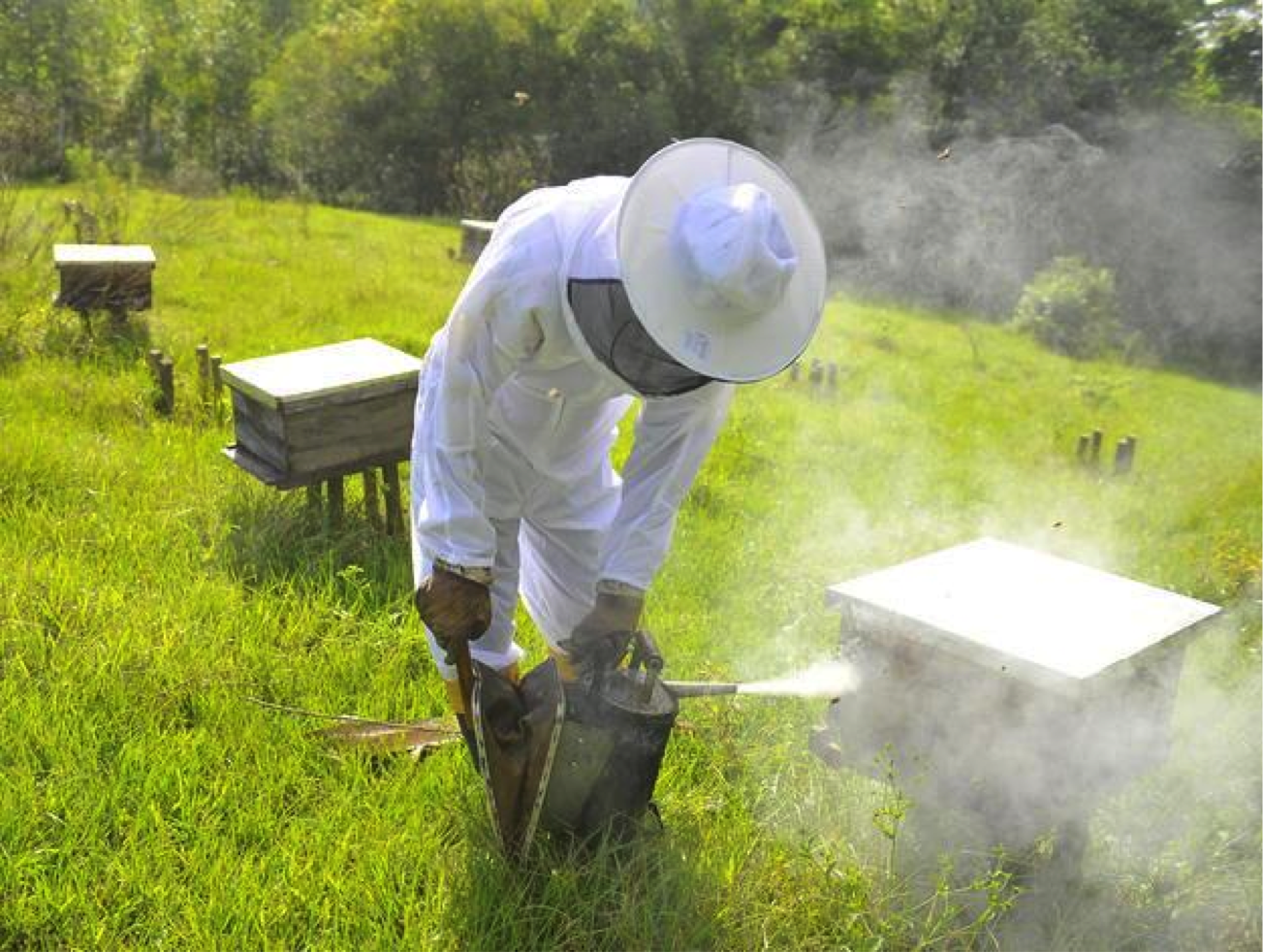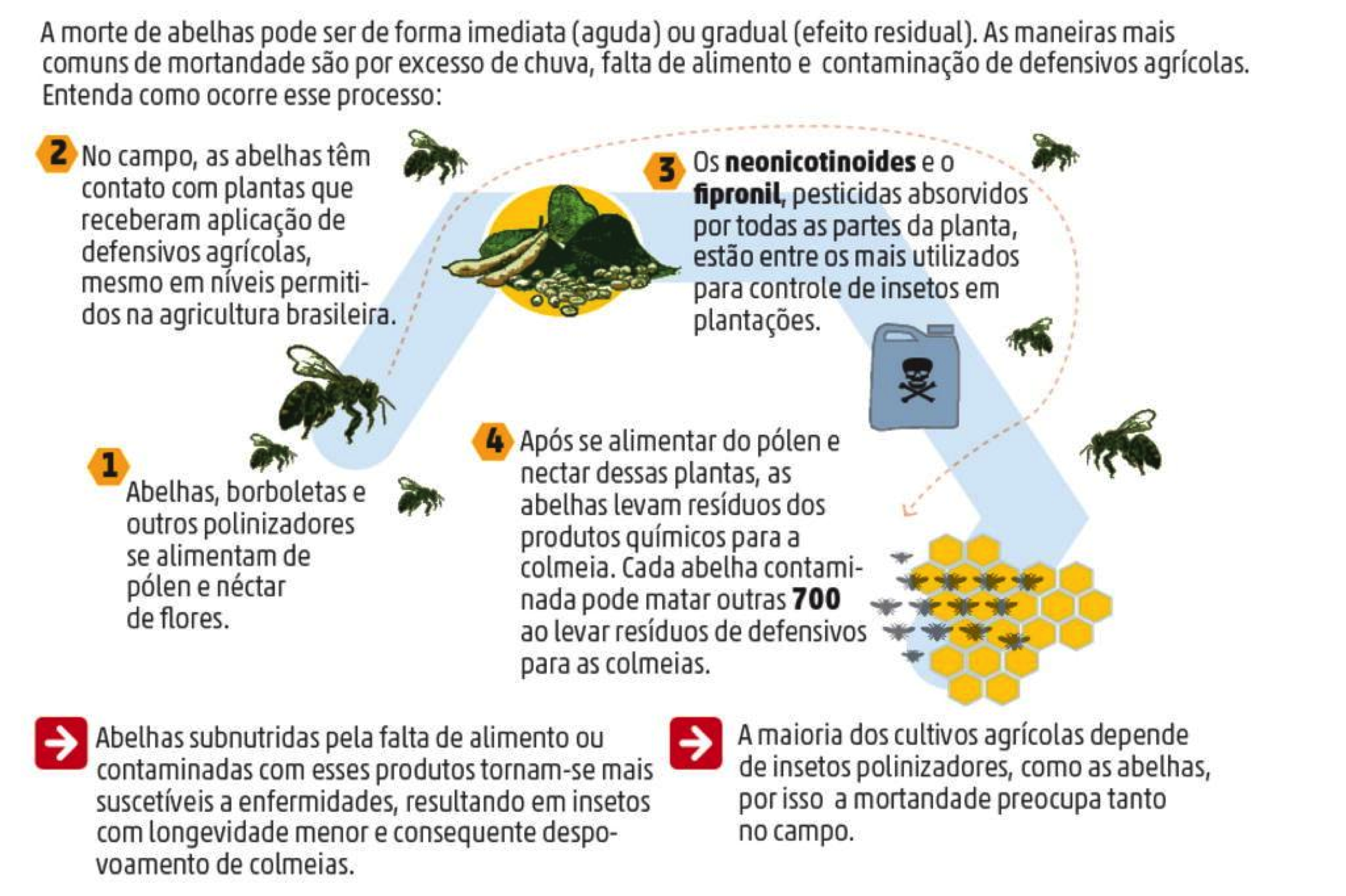
decrease 250 thousand hives affects the production of honey in the state (RS)
A lot of rain and wind last year and excessive use of pesticides in crops can be the cause of death of 50% Bees
by Joana Colussi, Zero Hora ; 13/01/2015 | 05h02
The unfortunate combination of a wet spring to action agricultural pesticides the cause is pointed at the disappearance of nearly 250 thousand hives in Rio Grande do Sul last year - which is equivalent to a death toll of nearly 50% do total. Brazil's largest producer of mel, the state has been dramatically affected by the reduction of insect colony. Frustration in apiaries lights the warning about the risk of depopulation of bees, responsible for much of pollination required for different crops.
In years considered normal, acceptable mortality rate is up to 15%. The higher percentage recorded in the state is attributed by experts to excess moisture and to the increasing use of pesticides on crops.
- The weather is not the only cause of mortality. The increased use of pesticides, highly efficient in agriculture, influences on the health of hives. The expansion of monocultures, associated with pesticide, requires monitoring to not compromise the longevity of bees explains Aroni Sattler, Beekeeping Professor of Agronomy School of the Federal University of Rio Grande do Sul (UFRGS).
The killing, a global concern, It was seen in all regions of the State, the southern half of the Valleys region. The activity, in Rio Grande do Sul, It involves 40 thousand producers - gaucho municipality with the largest honey production is Santana do Livramento. With the rain and wind that marked the Gaucho spring lacked food for bees, making them more susceptible to the action of pesticides used in plants that serve as food for them. Flowering impaired by moisture caused the yield of honey per hive not reached five kilos. The annual average is gaucho 20 kilograms per hive, resulting in 10 tons of honey.
- The reaped beekeepers 10% a 15% the expected volume. Problems are located normal. What happened this year was unprecedented - ensures Aldo Machado dos Santos, President of Rio Grande do Sul Beekeeping Federation.
The hope is deposited in autumn crop, when apiaries may be repopulated for honey production from March. Each hive is dead loss of R $ 500. Who anticipated managed to reduce losses. Apicultor em hopper, in Vale do Taquari, Celso Borba, 48 years, provided bees artificial feeding and mortality recorded below 15%. With protein supplementation and breeding of queen bee, The achieved yield 20 kilograms per hive.
Expansion of activity depends on qualification
 Over 80% production originating in family farming, beekeeping in the state is becoming more professional to fit in programs focused on agribusiness. Through the formalization, individual or associative models, producers can increase the value of marketed honey and significantly expand the outlets.
Over 80% production originating in family farming, beekeeping in the state is becoming more professional to fit in programs focused on agribusiness. Through the formalization, individual or associative models, producers can increase the value of marketed honey and significantly expand the outlets.
- The trend is this: legalize the production and conquer markets in supermarkets and trade shows - emphasizes Paul Francis Conrad, assistant coach Emater in beekeeping area.
Conforme Conrad, only about 20% of the state's production is tecnificada, with handling and appropriate boxes, breeding queen bees, replacement honeycomb and power control. This percentage of beekeepers can get productivity up 40 kilograms of honey per hive per year - the volume is twice the state average currently achieved.
- I return to 60% of the state's production comes from this portion tecnificada, which has in the sale of honey as their main source of income - estimated Conrad.
Professionalisation results in the agribusiness sector. With 33 points of sale Star, producer Joseph Horn, 64 years, participates in technical courses and seminars to improve the activity. In direct sale to the consumer, a kilo of honey goes for $ 12, average price sold in the state, second Emater.
- It is necessary to seek information and technical. If I had not done artificial feeding in hives, would lose much of the production this year - has the beekeeper, the Apiary owner Horn, which has an average production 4 kilos per year.


Sorry, the comment form is closed at this time.